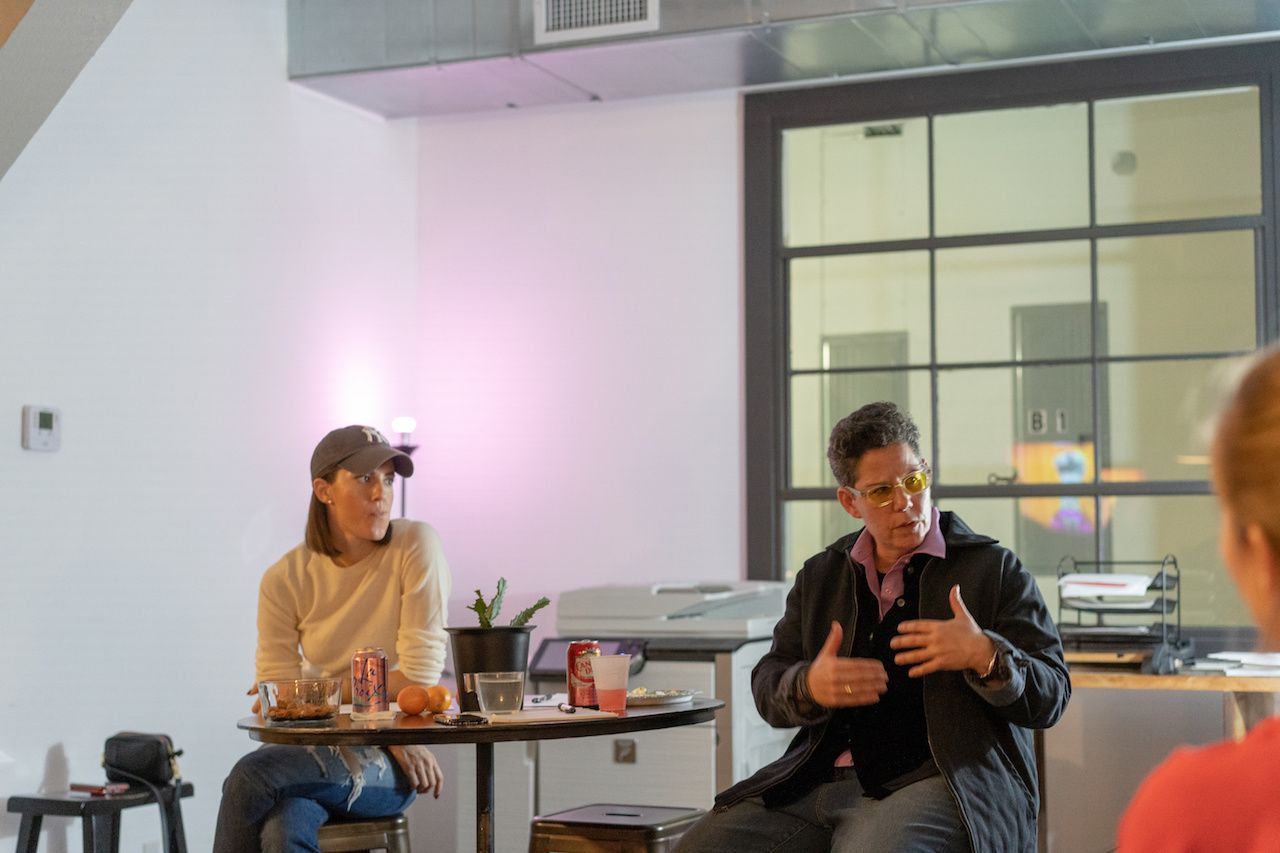Houston creatives relaunch nonprofit's brand through a 3-day collaboration
For good measure
What if you could harness the power of a city's top creative professionals to create a brand identity for a nonprofit that otherwise couldn't afford it? Alex Anderson posed that question to some of his colleagues, and Good Measure was born.
"Good Measure exists to broaden the conversation about good in the world and what that means and how people can contribute to good no matter their skill set," says Anderson, who is a senior brand strategist and account manager at Houston-based NUU Group.
Good Measure is a Houston-based nonprofit that hosts three-day creative collaborations with local designers, writers, brand strategists, and more. The goal is simple: Equip a nonprofit with new storytelling tools — like a website, social media, and video communicating the organization's message.
This weekend was the second event Anderson organized with his co-founder, Tres Garner. The nonprofit partner was the Transformational Prison Project, which uses restorative justice in Massachusetts prisons to help incarcerated individuals mindfully use their time in prison to create healing. It's about bringing everyone involved in the criminal justice system to the table to thoughtfully effect change and reinstate humanity in these prisons.
"The Transformational Prison Project understands that no matter what your position is within the criminal justice system that everybody is vulnerable to trauma. So, it's in everyone's vested interest to create more of a system that's reparative and healing than punitive." says Karen Lischinsky, director of TPP, in the teaser video created at Good Measure.
Lischinsky was a vital part of the weekend, as was actress Allison Williams (Girls and Get Out), who has been an advocate for TPP and has led restorative justice sessions in Massachusetts prisons for two years.
"I wish to transform the way that prisons, as we imagine them today, operate and the effects that they have on people," Williams says in the video.
Using their powers for good
Good Measure brought together 40 creatives — designers, developers, strategists, videographers, photographers, writers, stylists, and more — into NUU Group's East Downtown office to develop new branding, web design, and videography for TPP. Filming took place down the street at Primer Grey. Anderson says the point is to break down barriers and bring together individuals who would otherwise not get to work together.
"It's some feedback that we've heard over and over again how refreshing and inspiring it is to work with people across the city," Anderson says. "So, you get to come together and learn each other's processes and have a case study or portfolio piece with someone who's work you admire."
Good Measure volunteers work alongside the nonprofit partners, so Lischinsky and Williams were there every step of the way. It was a learning process for both sides of the equation — the volunteers making sure they understand and express the TPP's mission as well as TPP learning the importance of the brand development process. Anderson says Lischinsky's presence was key to the success of the weekend — as was Williams' who wasn't just a celebrity endorsement. Anderson says he could see her full heart was committed to the program.
"You pull in a celebrity figure, and there's a tactical play. It's advertising," he says. "But what was different about this event is that Allison is not a face. She showed up from the first day of Good Measure to participate and contribute as someone who is on the board of TPP and an advocate for the program."
Creating a movement
Good Measure is planning to double down on its efforts for a New York weekend early next year to serve two nonprofits with 100 creatives volunteering. The organization also expects to return to do another Houston weekend in 2019 as well as a collaboration in Los Angeles.
Anderson says they also plan on hosting a one-day conference in Houston to discuss social good. Williams and Lischinsky are both onboard to attend.







 Apple doubles down on Houston with new production facility, training centerPhoto courtesy Apple.
Apple doubles down on Houston with new production facility, training centerPhoto courtesy Apple.

